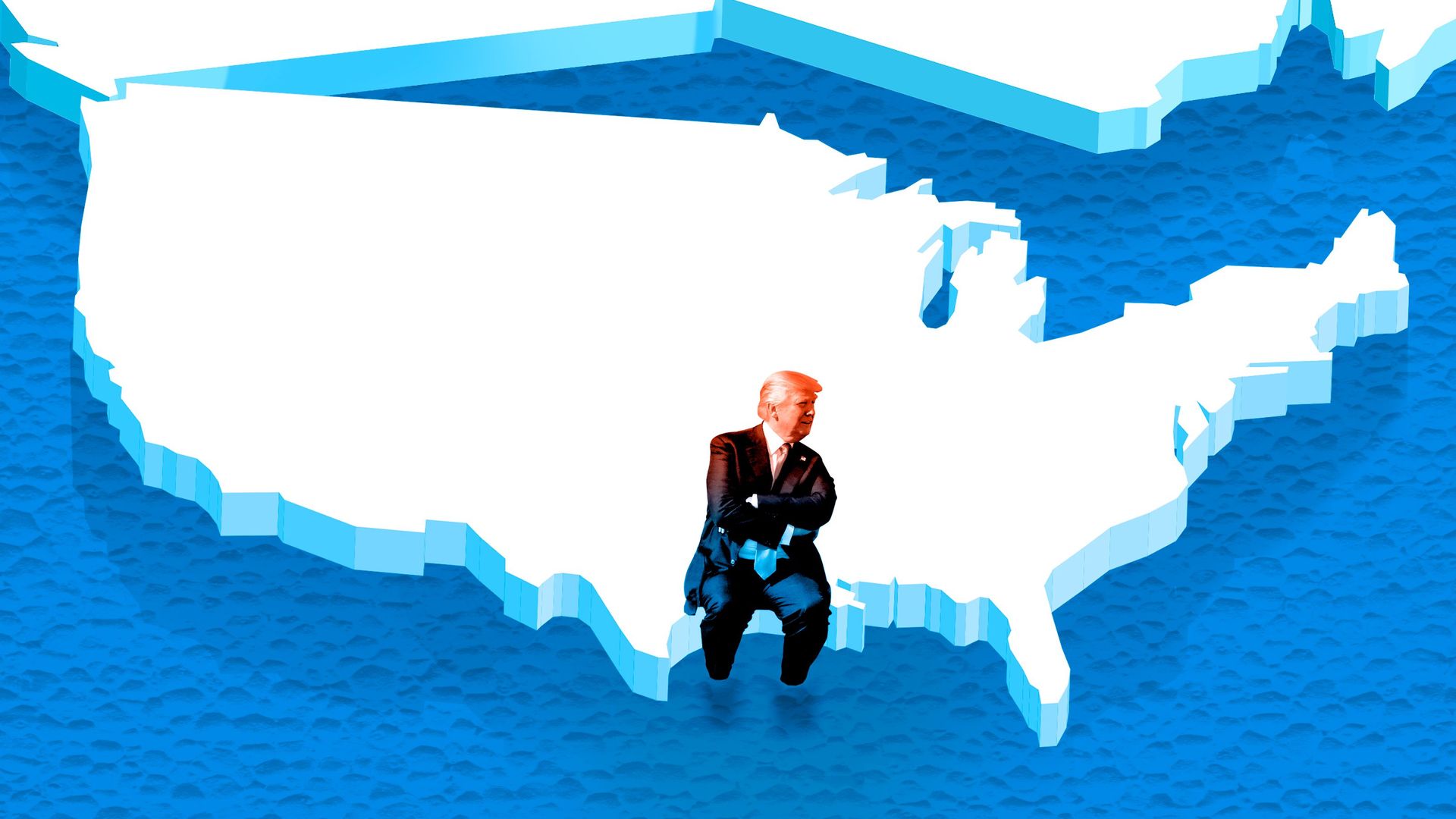Tech firms blast Trump's extended H-1B visa restrictions
Add Axios as your preferred source to
see more of our stories on Google.

Illustration: Lazaro Gamio/Axios
Tech companies reacted quickly and negatively Monday to news out of the Trump administration that it is extending a ban on entry of those with visas through the end of the year. Among those speaking out against the move are Facebook, Amazon, Google, Intel and Twitter, along with several tech trade groups.
The big picture: The Trump administration argues that visas like the H-1B widely used in the tech industry are responsible for taking jobs that American citizens could fill. Tech companies say they rely on these visas to fill positions with skilled workers from overseas when they've tapped out the American workforce.
Details: In addition to H-1B visas often relied on by big U.S. tech companies, the restrictions on entry will also affect visas for H-1B spouses, non-agriculture worker H-2B visas, short-term workers on J-1 exchange visas, and L visas, which allow companies to transfer employees working overseas to U.S. offices.
- The new restrictions will go into effect at 12:01 am on Wednesday, June 24. They will remain in place through the end of the year, which will likely prevent many new H-1B visa workers outside of the country from entering the U.S.
- Certain foreign workers involved in the food supply chain will be exempt from the ban, along with college and university professors. The medical worker exemption in the April restrictions was narrowed to exempt only those coming in to work on COVID-19 care or research, the official said.
What they're saying:
- "To continue its leadership in the fiercely competitive global semiconductor industry, the U.S. must be able to attract and retain highly trained and specialized engineers and scientists from all over the world. There is a shortage of such talent in the U.S., and foreign national graduates of U.S. advanced degree programs are essential to closing this skills gap." (Intel)
- "Preventing high skilled professionals from entering the country and contributing to America’s economic recovery puts American’s global competitiveness at risk." (Amazon)
- "America is a nation of immigrants and our economy and country benefit when we encourage talented people from around the world to live, work, and contribute here." (Facebook)
- "America’s continued success depends on companies having access to the best talent from around the world. Particularly now, we need that talent to help contribute to America’s economic recovery." (Google)
- "Now is not the time to cut our nation off from the world’s talent or create uncertainty and anxiety." (Microsoft president Brad Smith on Twitter)
- "As U.S. companies get their employees back to work, immigrants working in the technology industry are vital to sustaining promising recovery trends, as well as supporting the United States’ ongoing response to COVID-19." (ITI CEO Jason Oxman)
Imagine if Real Madrid or Barcelona could only hire players from Spain. They probably wouldn’t be the best in the world anymore. This is what the new executive orders will do to American technology companies.— Duolingo CEO Luis von Ahn, on Twitter
The other side: Trump's proclamation extending the visa ban claimed that, between February and April, "more than 20 million United States workers lost their jobs in key industries where employers are currently requesting H-1B and L workers to fill positions."
Reality check: There is no relationship between widespread job losses across the U.S. economy thanks to the pandemic and related lockdowns and the tech industry's use of H-1B visas.
- Also, the specific jobs the tech industry seeks to fill with visa holders are unlikely to be filled by the millions of workers idled across so many U.S. industries.

